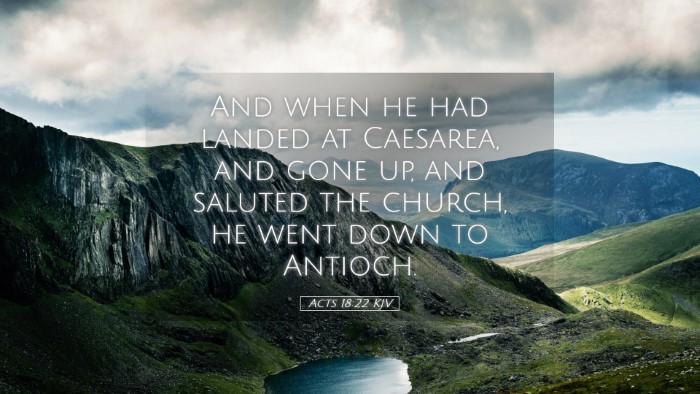Old Testament
Genesis Exodus Leviticus Numbers Deuteronomy Joshua Judges Ruth 1 Samuel 2 Samuel 1 Kings 2 Kings 1 Chronicles 2 Chronicles Ezra Nehemiah Esther Job Psalms Proverbs Ecclesiastes Song of Solomon Isaiah Jeremiah Lamentations Ezekiel Daniel Hosea Joel Amos Obadiah Jonah Micah Nahum Habakkuk Zephaniah Haggai Zechariah MalachiVerse
Acts 18:1 Acts 18:2 Acts 18:3 Acts 18:4 Acts 18:5 Acts 18:6 Acts 18:7 Acts 18:8 Acts 18:9 Acts 18:10 Acts 18:11 Acts 18:12 Acts 18:13 Acts 18:14 Acts 18:15 Acts 18:16 Acts 18:17 Acts 18:18 Acts 18:19 Acts 18:20 Acts 18:21 Acts 18:22 Acts 18:23 Acts 18:24 Acts 18:25 Acts 18:26 Acts 18:27 Acts 18:28

